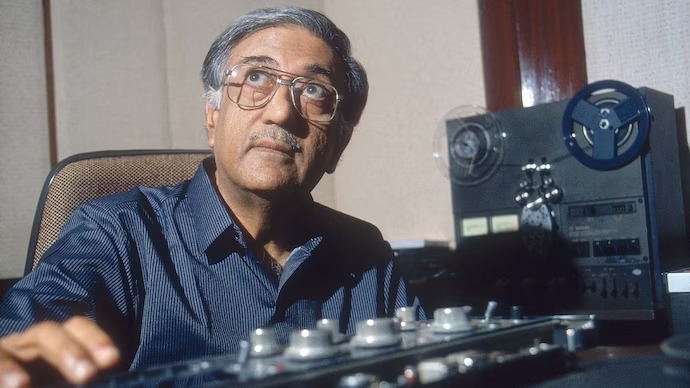Shruti Sneha, Pune
Ameen Sayani, a highly regarded personality in Indian radio who is best known for his hit program “Binaca Geet Mala,” passed away on Tuesday at the age of 91 due to a heart attack. For Indian radio fans who have appreciated his contributions over the years, his passing signifies the end of an era.
Born in 1932 into a literary and linguistically inclined family, Ameen Sayani started his career in broadcasting in 1951 when he joined Radio Ceylon. His distinguished radio career was made possible by his upbringing, which was rich in a literary culture. Contributing to his mother’s editing of “Rahber,” a journal started by Mahatma Gandhi, highlighted his early experience with expression and communication.
Listeners all around the country were enthralled with Sayani’s distinctly friendly and captivating style. “Namaskar bhaiyon aur behno, main aapka dost Ameen Sayani bol raha hoon,” which became his trademark opening, was instantly recognizable and made a strong emotional bond with his audience. Notably, his 30-minute Radio Ceylon program “Binaca Geet Mala” quickly shot to enormous popularity in the 1950s and continued through several incarnations, such as “Hit Parade” and “Binaca Geet Mala,” until 1994.
He achieved great success during his voiceover career, hosting and comparing more than 54,000 radio shows and contributing to about 19,000 jingles. As a result, he was honoured to be included in the Limca Book of Records. In addition to his extraordinary career achievements, Sayani’s interviews with icons of the Golden Age, including Lata Mangeshkar, Mohammad Rafi, Raj Kapoor, and Kishore Kumar, are ingrained in the memories of his countless fans.
When Kishore Kumar interviewed himself for his show or when he spoke with Raj Kapoor, he would pose tough questions to Lata Mangeshkar about marriage and royalty. His interactions with the stars of the Golden Era also attracted their fan base.
Ameen recalled those moments by saying, “I wanted each listener to feel like I was talking to them and it immediately struck a chord,” in an interview with Indian Express. Surprisingly enough, it completely changed radio presentation. “I never thought it would become so popular in the upcoming years. Such wonderful times those were. I was in love with Radio Ceylon at the time.”
